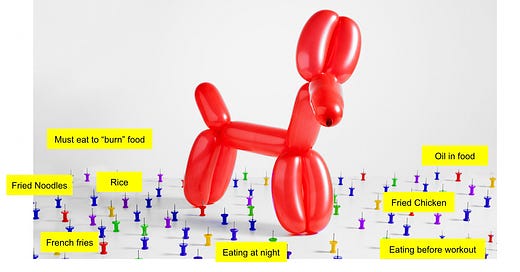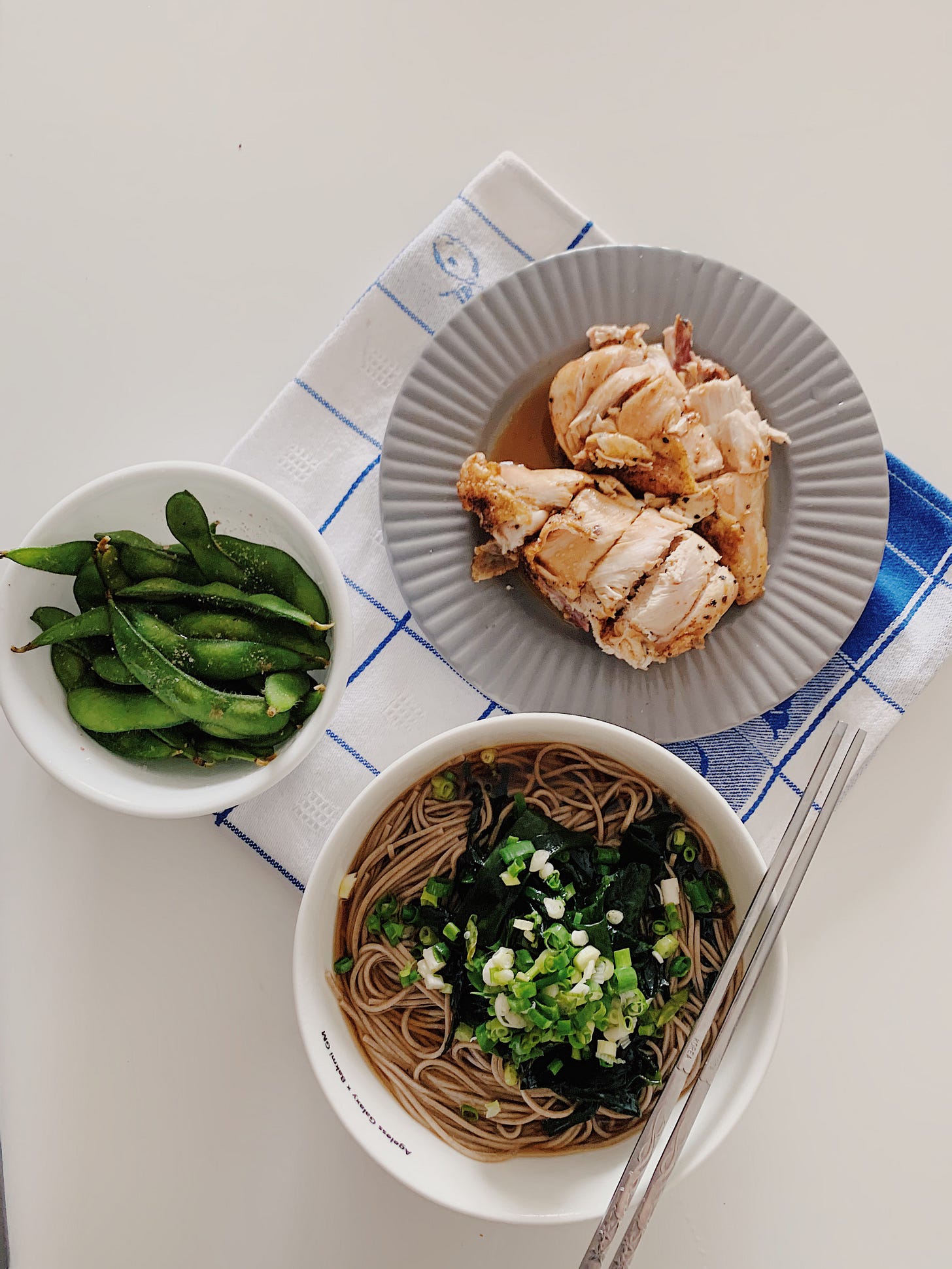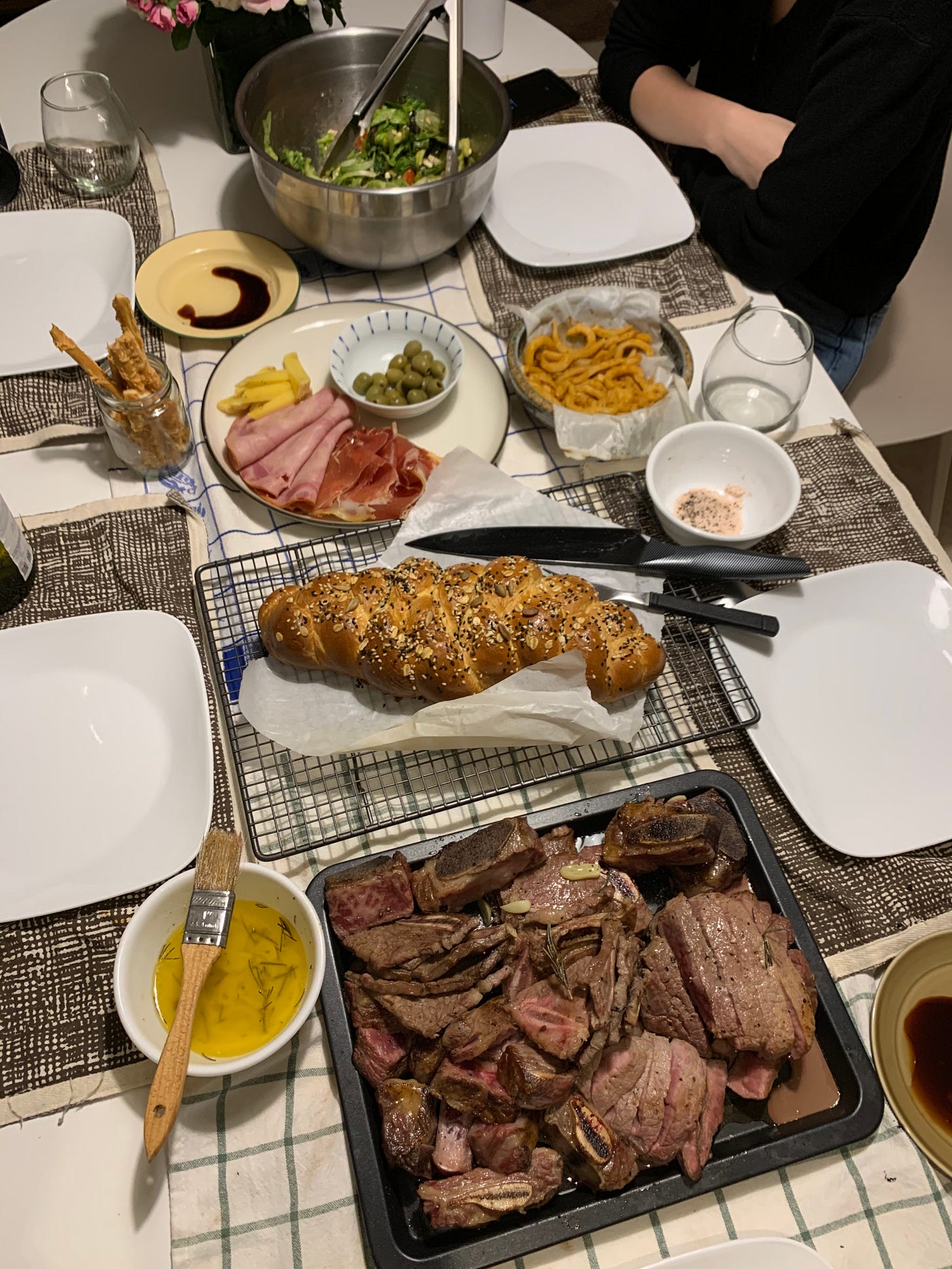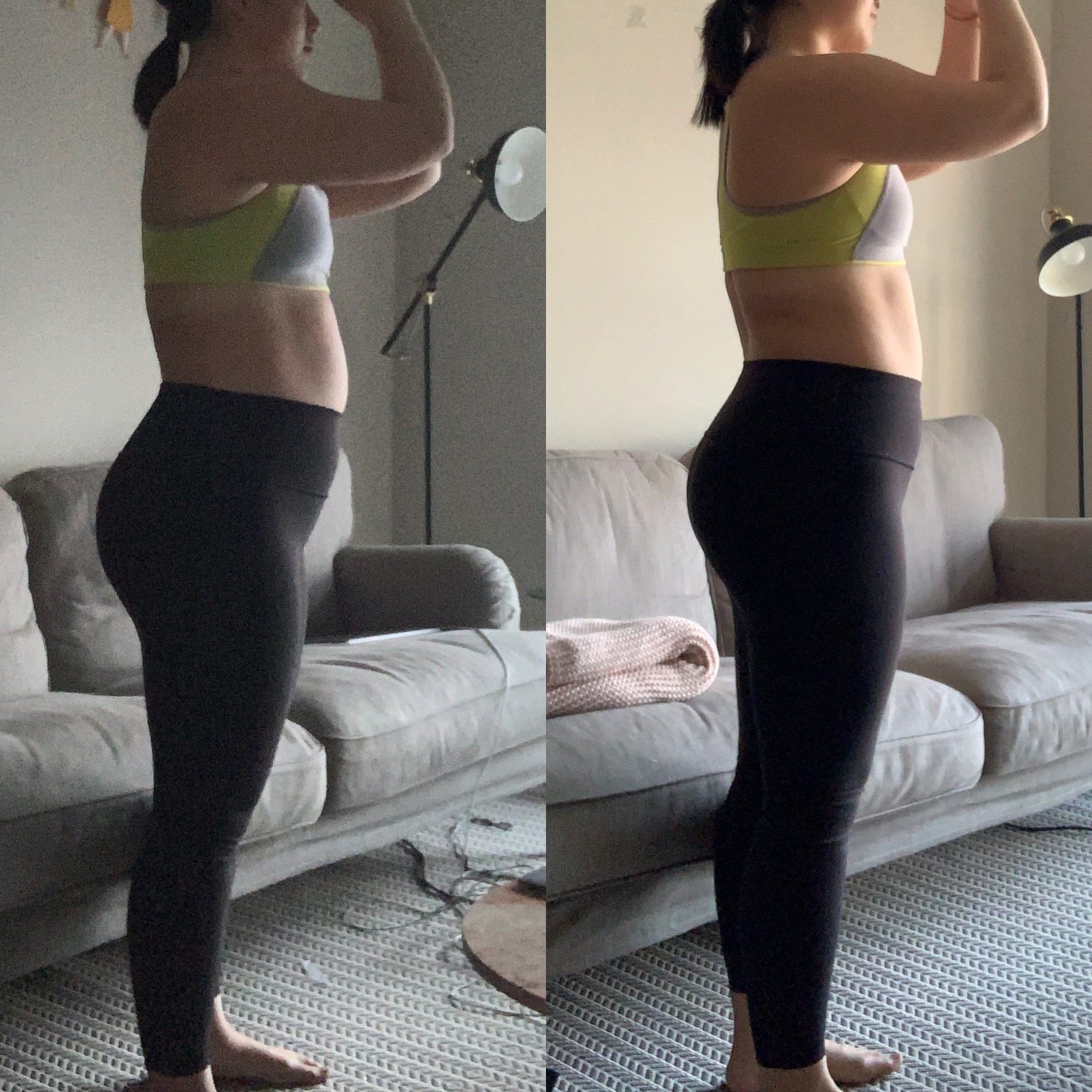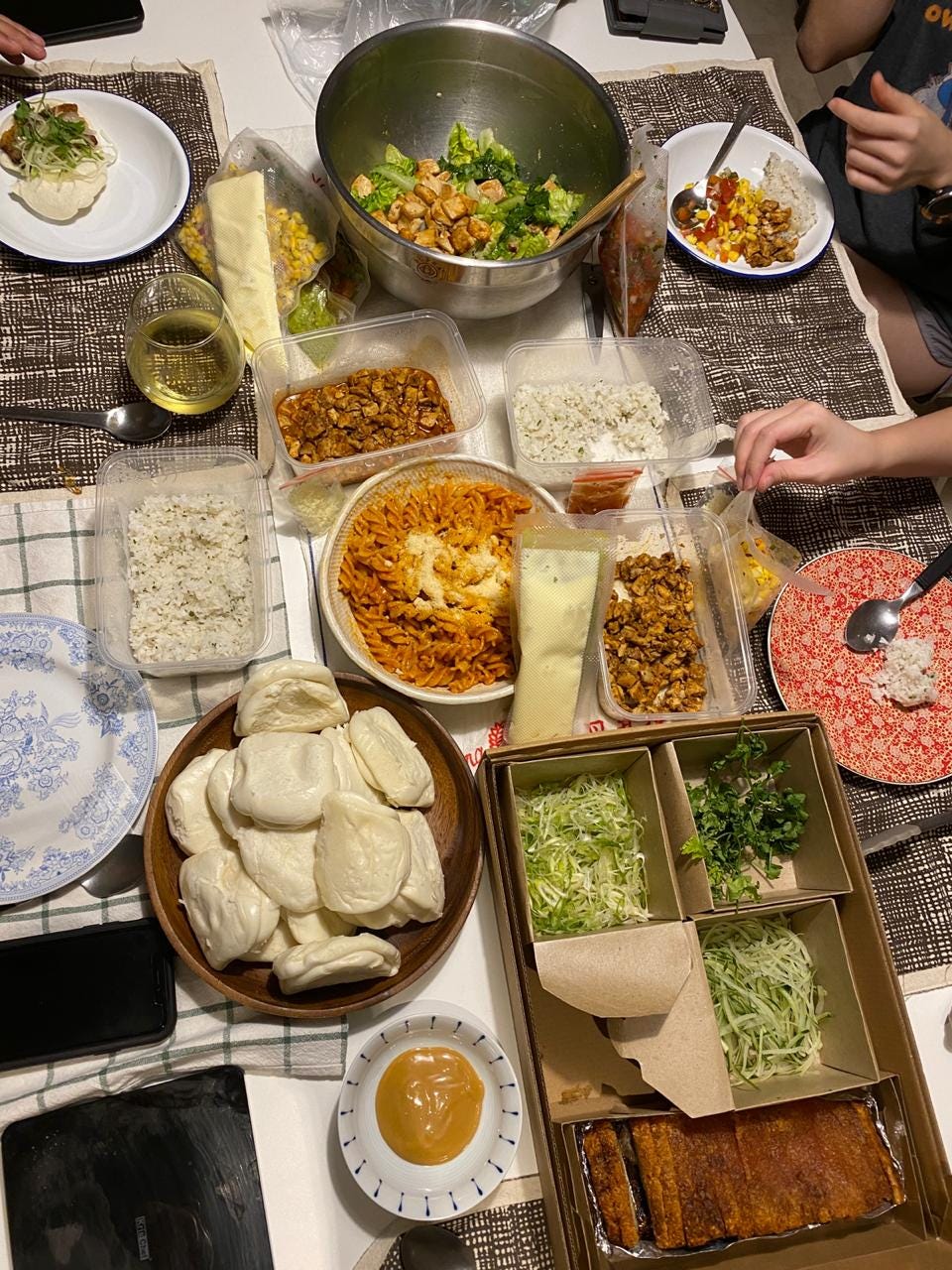To achieve full recovery, your relationship with food has to be improved. To improve your relationship with food, you have to educate yourself about nutrition and food. As I work together with my health coach on how to start introducing more food into my diet, I still struggled to “feel full”. I was still scared of putting on weight. I felt like this red balloon.
As I started to educate myself slowly on macronutrients (protein, fats and macros) and their function, the fear started to fade away. This is why I always believe knowledge is extremely powerful.
When I first started, I was even afraid of finishing any food I ordered. I was extremely unfamiliar with feeling full, fullness. For the last few years of my life, I was always used to being hungry. My hunger cues were completely messed up, even exaggerated by my extreme restrictive diets like intermittent fasting.
Over the 12-month period of assisted recovery, I worked with a fitness and nutrition coach for a 2 or 3 month time period. After gaining weight from eating to satiety, I later on also used an online nutrition coach based in Australia. This nutrition application is mostly used for weight loss — but I definitely gained quite a bit of knowledge from a 8-week program. This online application focuses on macronutrients and flexible dieting, which helped me elevate my fear about many food that was “off-limits”.
Here is a short summary on the 3 macronutrients:

During the early days of my program, I even questioned if I should be feeling so “full”. I ate till extreme satiety. I was able to eat snacks; even candies, chocolate or ice cream. I was required to weigh my food, and ensure that I ate a lot. As the saying goes, practice makes perfect, the more I weighed my food, the better I become at being able to estimate the amount of calories I was eating. In addition, during 2020, we were all forced to stay home so that made eating in much easier! The more I ate, the more I got used to listening to my hunger cues.
I later learnt that this was the process of practicing intuitive eating, a self-care eating framework, which integrates instinct, emotion, and rational thought. It sounds really difficult, but intuitive eating is a skill that you can get better in.
I first started my recovery in late June 2019. It was only up till June 2020 that I finally stopped counting calories and learnt to trust my own hunger cues. It was a long and uneasy process. Intuitive eating doesn’t happen overnight. If you’re wondering how your relationship with food can improve, it takes time and deliberate effort. For you who are scared of food, I hope that this serves as an encouragement that changes does not happen overnight.
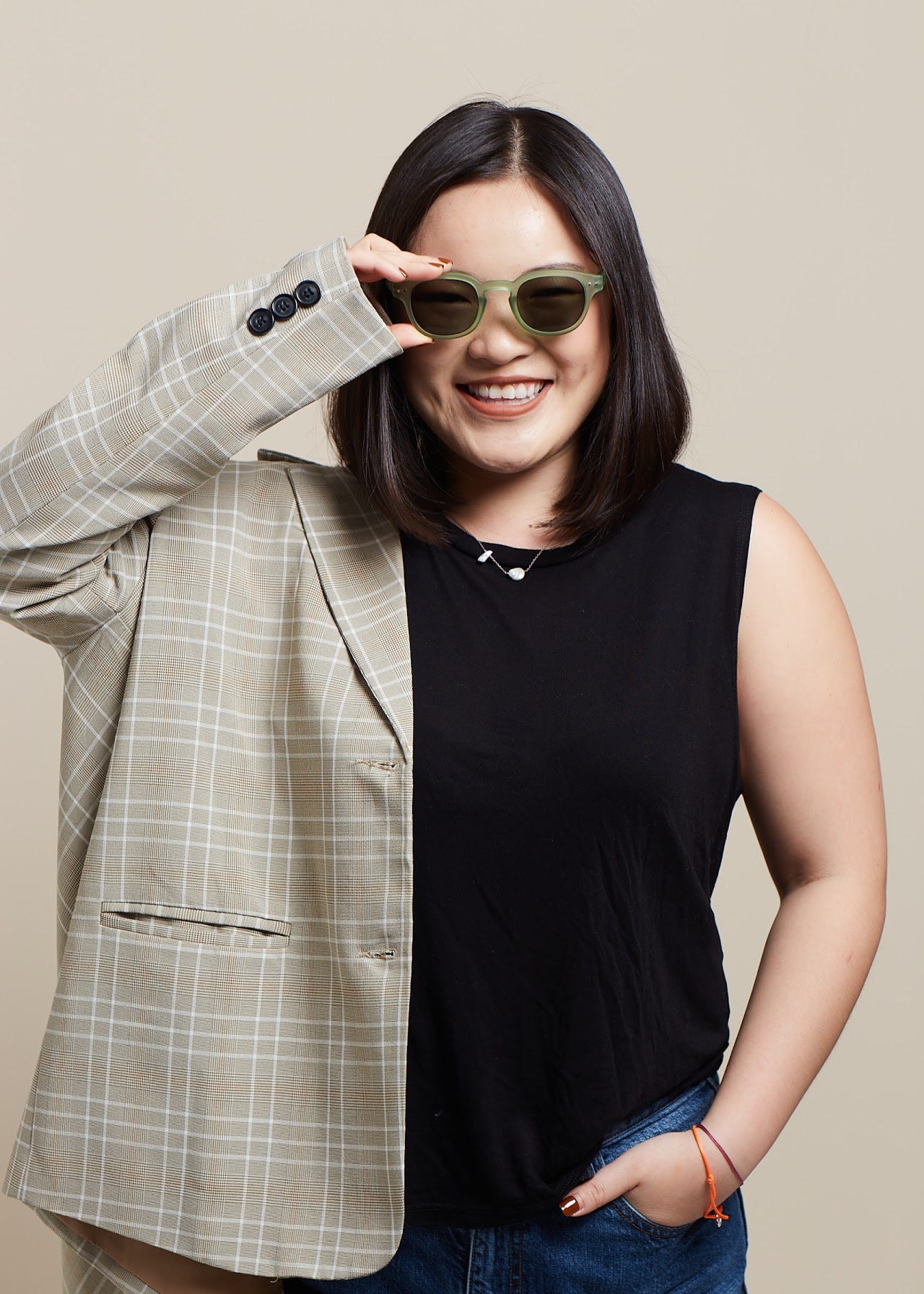
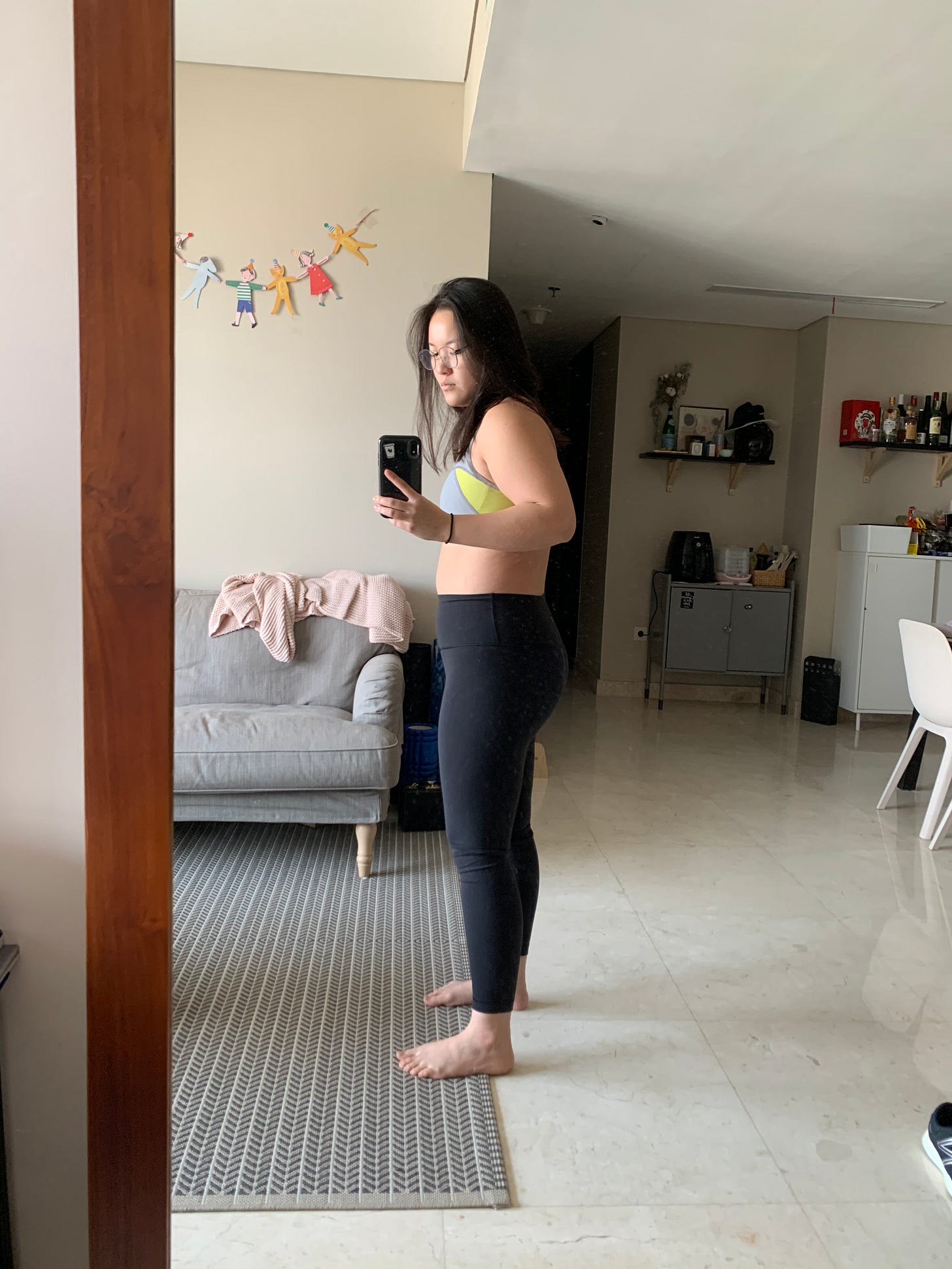

My friend, Alvina Olivia, speaks a lot about how we can develop small habits that will lead to long term changes. There are tons of resources online now and best is, they’re all free of charge. I also spoke with my nutritionist friend, Ledyan tonight on my IG TV tonight. In this session, we deep dived into what nutrition-dense food is and what calorie-dense food is. If you want to learn more, please head to our IG live. If you enjoyed this post, please feel free to share this with your friends!
In next week’s post, I’ll talk about how my weight started coming off very naturally over my period of recovery. See you next week!
